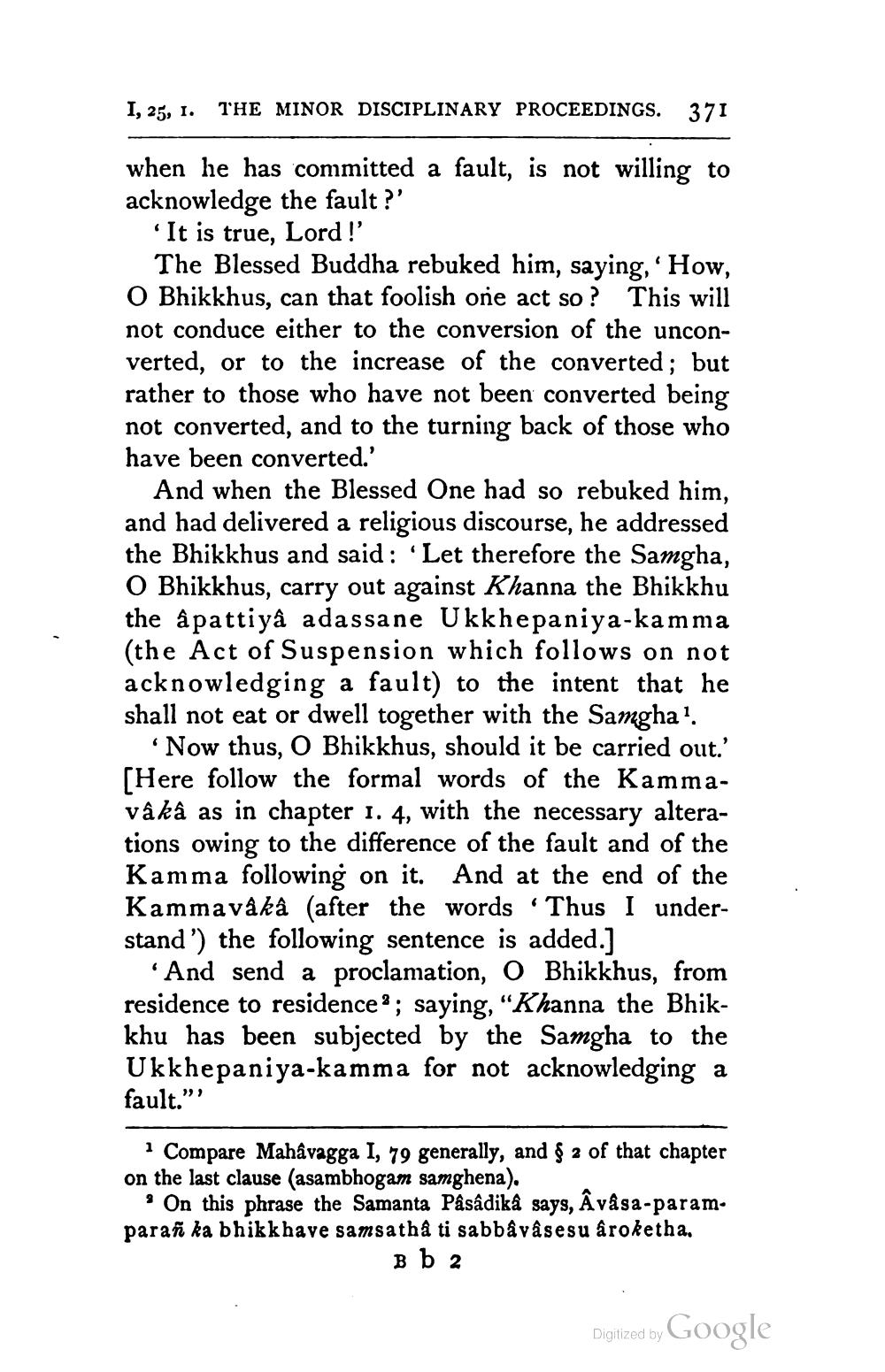________________
1, 25, 1. THE MINOR DISCIPLINARY PROCEEDINGS. 371
when he has committed a fault, is not willing to acknowledge the fault ?'
It is true, Lord !' The Blessed Buddha rebuked him, saying, 'How, O Bhikkhus, can that foolish one act so ? This will not conduce either to the conversion of the unconverted, or to the increase of the converted; but rather to those who have not been converted being not converted, and to the turning back of those who have been converted.'
And when the Blessed One had so rebuked him, and had delivered a religious discourse, he addressed the Bhikkhus and said: 'Let therefore the Samgha, O Bhikkhus, carry out against Khanna the Bhikkhu the âpattiyâ adassane Ukkhepaniya-kamma (the Act of Suspension which follows on not acknowledging a fault) to the intent that he shall not eat or dwell together with the Samgha?
Now thus, O Bhikkhus, should it be carried out.' [Here follow the formal words of the Kammavâkâ as in chapter 1. 4, with the necessary alterations owing to the difference of the fault and of the Kamma following on it. And at the end of the Kammavàkà (after the words "Thus I understand ') the following sentence is added.]
And send a proclamation, O Bhikkhus, from residence to residence 3 ; saying, "Khanna the Bhikkhu has been subjected by the Samgha to the Ukkhepaniya-kamma for not acknowledging a fault.”'
i Compare Mahâvagga I, 79 generally, and § 2 of that chapter on the last clause (asambhogam samghena).
On this phrase the Samanta Pâsâdikå says, Âvasa-param. para% ka Bhikkhave samsathả ti sabbậvậsesu froketha.
Bb 2
Digitized by
Digitized by Google




